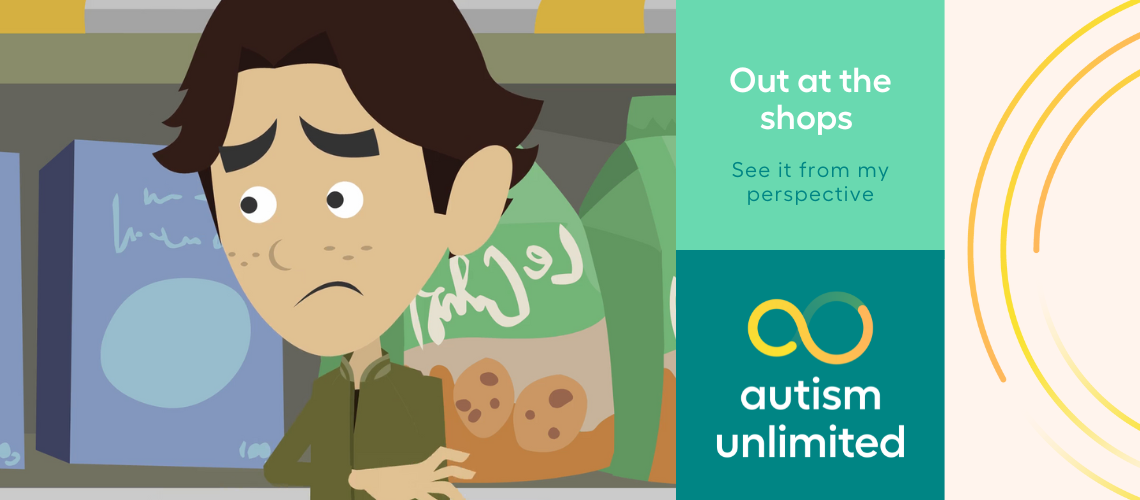Child's Perspective - Shopping

When people see a child making sounds, stimming, or behaving a little bit differently in a supermarket and other public environments, many are quick to assume that they are just throwing a tantrum or being disobedient.
When Deborah’s son had a ‘meltdown’ in the supermarket, onlookers were quick to stare and pass judgement. What some people don't realise is that a ‘meltdown’ happens when someone becomes completely overwhelmed by their current situation – it’s a reaction to a highly distressing environment which is out of their control.
Supermarkets can be busy and loud spaces, which can be challenging for those with sensory sensitivities. The sounds from the self-checkout machines, background music, strong smells, bright artificial lighting and crowds of people can combine to create an overwhelming environment for many autistic people, including Deborah’s son.
After stepping into the supermarket and facing the different sensory stimuli, his distress became increasingly apparent. Before a ‘meltdown’ occurs, there are often signs of unease – for example, Deborah’s son started holding his head to block out the sensory input. Eventually, it was all too much, and he ran out of the shop as a means to escape the growing discomfort.
Deborah said: “Everything was going really well, until I noticed my son was behaving a bit differently. I was becoming a bit concerned. He didn’t seem very happy at all and it was really busy, and before I knew it, he shot off.”
When there is too much sensory information to process at the same time, some autistic people can become overloaded, and the way this is expressed is different for each individual. In this case, Deborah’s son started screaming and ran out of the supermarket and into the car park, where he started thrashing around on the ground.
During that moment, he was experiencing high levels of anxiety and stress, and instead of being met with empathy from onlookers, most of the public reaction was one of judgement. It’s important to show kindness and sensitivity in this situation, which is difficult enough without the additional scrutiny. Instead, consider asking if they are OK and if they need any help – the display of support can make a world of difference.
Deborah was able to keep him safe and calm by reassuring him that everything was going to be OK. Different strategies work for different people – but it’s important to stay patient and calm. It can take time to recover from the sensory overload.
‘Meltdowns’ can be exhaustive for the individuals involved, and by increasing our understanding and practising empathy, we can make it just that bit easier for them.
His Top Tip: Before passing judgement, try to be sensitive to the situation and handle it with compassion.
*The phrase ‘meltdown’ is something Deborah is comfortable using to describe what her son is experiencing.






